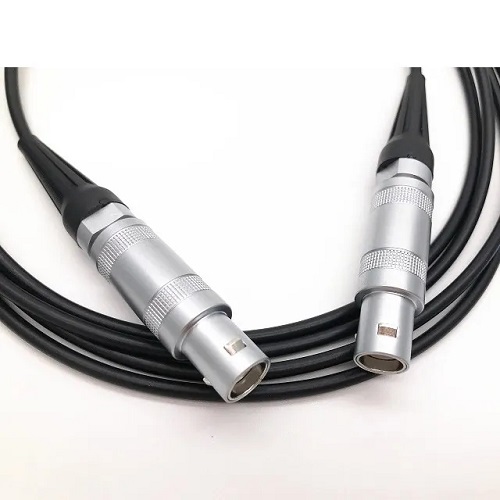- English
- Español
- Português
- русский
- Français
- 日本語
- Deutsch
- tiếng Việt
- Italiano
- Nederlands
- ภาษาไทย
- Polski
- 한국어
- Svenska
- magyar
- Malay
- বাংলা ভাষার
- Dansk
- Suomi
- हिन्दी
- Pilipino
- Türkçe
- Gaeilge
- العربية
- Indonesia
- Norsk
- تمل
- český
- ελληνικά
- український
- Javanese
- فارسی
- தமிழ்
- తెలుగు
- नेपाली
- Burmese
- български
- ລາວ
- Latine
- Қазақша
- Euskal
- Azərbaycan
- Slovenský jazyk
- Македонски
- Lietuvos
- Eesti Keel
- Română
- Slovenski
- मराठी
- Srpski језик
Introduction: The Critical Role of Sealed Interconnections
Table of Contents
-
Introduction: The Critical Role of Sealed Interconnections
-
Key Advantages of Our Waterproof Connector Series
-
In-Depth Analysis: Waterproof Connector Technical Parameters
-
The Evolution of Waterproof Performance: From IP Ratings to Real-World Reliability
-
FAQ: Answering Your Questions on Waterproof Connectors
Introduction: The Critical Role of Sealed Interconnections
In today's interconnected world, electrical and data systems are expected to perform flawlessly in the harshest environments. From industrial automation and outdoor telecommunications to agricultural machinery and marine applications, exposure to moisture, dust, chemicals, and extreme temperatures is a constant threat. This is where the unsung hero of reliability comes into play: the Waterproof Connector. A standard connector failure can lead to costly downtime, data loss, and safety hazards. Therefore, selecting a connector with proven waterproof performance is not just a specification—it's a critical investment in operational continuity and safety.
Key Advantages of Our Waterproof Connector Series
Our engineering philosophy is built on creating robust, reliable, and user-friendly interconnection solutions. Our Waterproof Connector product line embodies this commitment, offering distinct advantages that set us apart in the market.
-
Superior Sealing Technology: Utilizing multi-seal designs, including high-grade silicone O-rings and gaskets, we ensure a complete barrier against ingress. The precision molding of housing components guarantees a perfect fit, eliminating the primary paths for water and contaminants.
-
Robust Construction Materials: We employ engineering-grade thermoplastics and corrosion-resistant metals like stainless steel for housings and contacts. This ensures exceptional resistance to impact, UV radiation, wide temperature fluctuations, and exposure to oils and chemicals.
-
High-Pressure and Submersible Capability: Many of our models are designed and tested for continuous submersion at significant depths, making them ideal for marine, underwater sensing, and washdown applications.
-
Ease of Installation: Despite their ruggedness, our connectors are designed for quick and easy field assembly. Color-coded components, tool-less locking mechanisms, and clear polarization features reduce installation time and prevent errors.
-
Vibration and Shock Resistance: The secure locking systems and robust material composition ensure a stable connection that withstands high levels of vibration and mechanical shock, common in transportation and heavy machinery applications.
In-Depth Analysis: Waterproof Connector Technical Parameters
To make an informed decision, understanding the technical specifications is crucial. Below is a detailed breakdown of the key parameters for our standard industrial Waterproof Connector series.
Key Specifications List:
-
IP Rating: IP68 & IP69K
-
Operating Temperature Range: -40°C to +125°C
-
Contact Material: Gold-plated copper alloy
-
Housing Material: PA66 (Nylon 66) / Stainless Steel
-
Number of Contacts: 3 to 24 pins
-
Rated Voltage: Up to 630V
-
Rated Current: Up to 16A per contact
-
Locking Mechanism: Bayonet, Push-Pull, or Threaded
Detailed Parameter Table:
| Parameter | Specification | Test Standard |
|---|---|---|
| Ingress Protection (IP) | IP68 (Submersible up to 1m for 30 mins) & IP69K (Protected against high-pressure, high-temperature water jets) | IEC 60529 |
| Voltage Rating | 250V AC/DC | IEC 60512 |
| Current Rating | 10A | IEC 60512 |
| Insulation Resistance | ≥ 5,000 MΩ | IEC 60512 |
| Dielectric Strength | 2,000 VAC for 1 minute | IEC 60512 |
| Contact Resistance | ≤ 5 mΩ | IEC 60512 |
| Vibration Resistance | 10Hz~2000Hz, 150m/s² | IEC 60068-2-6 |
| Shock Resistance | 500m/s², 11ms | IEC 60068-2-27 |
| Flammability Rating | UL94 V-0 | UL 94 |
The Evolution of Waterproof Performance: From IP Ratings to Real-World Reliability
The development of waterproof sealing technology has moved beyond simply meeting a standard IP code. While the IP68 rating is a benchmark, our R&D focuses on long-term reliability under dynamic conditions. We simulate years of environmental stress in our labs, testing for:
-
Thermal Cycling: Repeatedly exposing connectors to extreme hot and cold cycles to test the integrity of seals over time.
-
Chemical Resistance: Ensuring housing and sealing materials do not degrade when exposed to industrial solvents, fuels, and salt water.
-
Mechanical Durability: Testing the mating and unmating cycle life to guarantee the connector maintains its seal even after hundreds of connections and disconnections.
This proactive approach to development ensures that every connector we ship is not just waterproof on paper but is built to provide dependable service throughout the product's entire lifecycle.
If you are very interested in NINGBO ACIT ELECTRONIC's products or have any questions, please feel free to contact us.
FAQ: Answering Your Questions on Waterproof Connectors
1. What is the difference between IP67, IP68, and IP69K ratings?
-
IP67: Protects against temporary immersion in water (up to 1m for 30 minutes).
-
IP68: Protects against continuous immersion in water under conditions specified by the manufacturer (e.g., deeper than 1m or for longer durations).
-
IP69K: Protects against close-range high-pressure, high-temperature water jets. This is critical for applications requiring frequent, aggressive cleaning, such as in food and beverage processing.
2. Can I use a waterproof connector in saltwater environments?
Yes, but it is essential to select a model with appropriate material specifications. We recommend connectors with stainless steel housings and high-quality seals specifically tested for corrosion resistance against salt water to ensure long-term performance.
3. How do I ensure the connector maintains its waterproof seal during installation?
Proper installation is key. Always ensure the sealing O-rings are clean, undamaged, and correctly seated before mating. Hand-tighten the coupling nut or locking mechanism until it is firmly seated, avoiding the use of tools that could over-torque and damage the housing or seals. Always refer to the manufacturer's installation guide.




